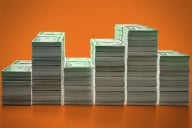You have /5 articles left.
Sign up for a free account or log in.
It's not often that National Collegiate Athletic Association officials get dragged before Congress and come out smelling like a rose. But that's what happened Thursday at a House hearing on the use of anabolic steroids in sports, and the NCAA has Major League Baseball to thank.
Members of two House of Representatives Energy and Commerce subcommittees raked baseball officials over the coals at the hearing, condemning the league repeatedly for doing too little, and too late, to uncover steroid use and to punish those found to have used the muscle-building drugs.
By comparison, the NCAA's drug testing policies (as well of those of the National Football League and the Olympics) were repeatedly praised by lawmakers. The college association began testing all athletes who participated in its national championships in 1986 and started random testing of athletes in all sports year-round in 1990.
"I like what the NCAA has," said Rep. Fred Upton (R-Mich.), citing a set of penalties that call for a one-year suspension from competition on an athlete's first violation and the loss of all college sports eligibility for a second violation.
In response to questioning about the ability of athletes generally to circumvent drug testing procedures, Mary E. Wilfert, who oversees the association's testing and drug education programs, acknowledged that the NCAA's system is not perfect. "I believe that our testing does identify steroid users, but we know we don't identify every steroid user," she said. "To do that, you'd probably need to test every day, everybody, all the time."
But Ms. Wilfert told the subcommittee members that the "deterrent aspect of testing" limits athletes' use of banned drugs like steroids.
Members of the House panels expressed grave concern both about the relative laxity of the testing policies in the professional leagues and the apparently growing prevalence of steroid use in high schools, both of which have implications for the colleges.
Rep. Jan Schakowsky (D-Ill.) described the "ripple effect" of college athletes looking longingly at the millions of dollars waiting for them if they're talented enough -- or strong enough or fast enough -- to make the pros, and high school athletes watching their predecessors heading off to the relative fame of big-time college sports.
"They know that the only way they'll get the scholarship is if they're the biggest and best, and how can they be biggest and best if their fellow student is pumped up?" she asked.









